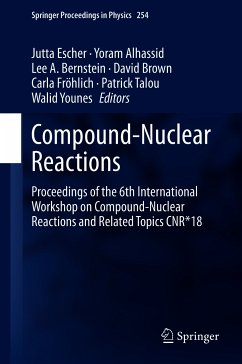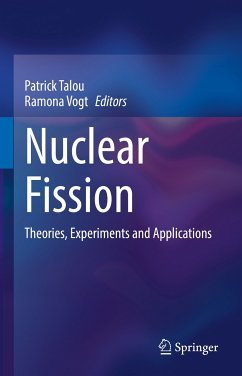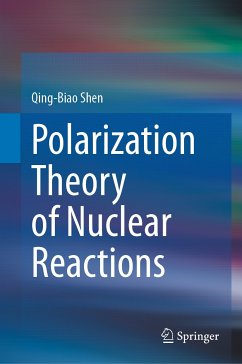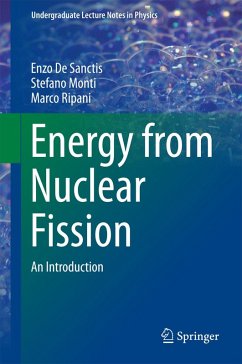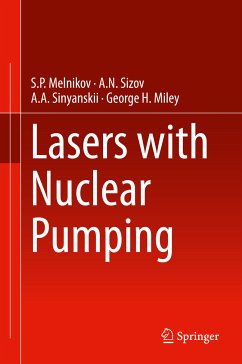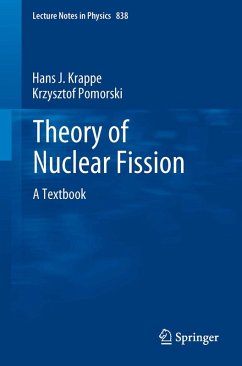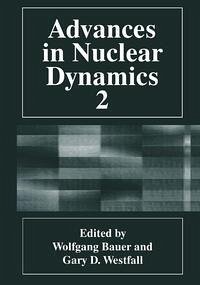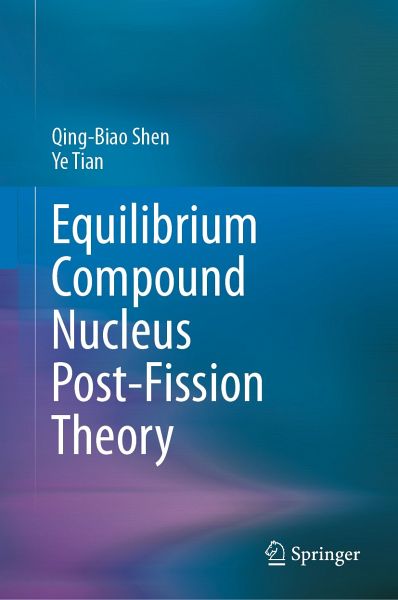
Equilibrium Compound Nucleus Post-Fission Theory (eBook, PDF)
Versandkostenfrei!
Sofort per Download lieferbar
104,95 €
inkl. MwSt.
Weitere Ausgaben:

PAYBACK Punkte
52 °P sammeln!
This book proposes and develops the equilibrium compound nucleus post-fission theory, a powerful tool for studying the fission process and making numerical calculations of post-fission nuclear data. It begins with a detailed historical background on fission theory and covers fundamental concepts, such as the Bohr-Wheeler formula and time dependent nuclear density functional theory.The authors explain the kinematics of heavy-ion collisions and develop a heavy-ion spherical optical model. They also present the theoretical methods for calculating the yield, kinetic energy distribution, and angula...
This book proposes and develops the equilibrium compound nucleus post-fission theory, a powerful tool for studying the fission process and making numerical calculations of post-fission nuclear data. It begins with a detailed historical background on fission theory and covers fundamental concepts, such as the Bohr-Wheeler formula and time dependent nuclear density functional theory.
The authors explain the kinematics of heavy-ion collisions and develop a heavy-ion spherical optical model. They also present the theoretical methods for calculating the yield, kinetic energy distribution, and angular distribution of fission fragments in the initial state of fission. In addition, readers are provided with the method for calculating the prompt neutron and prompt gamma-ray data as well as the proportion of the isomeric state nucleus and independent yield from the initial yield of the fission fragments. Using the nuclear decay data of the fission products, a method for calculating thecumulative yield and decay heat of the fission fragments is also given. A fission delayed neutron simplification model is proposed and the theoretical method for calculating the total contribution of three fission channels to post-fission nuclear data is provided.
This book concludes with a step-by-step guide on numerical calculations for post-fission nuclear data and a Fortran program for optimizing the best theoretical model parameters. It is ideal for both junior and senior researchers in nuclear physics, as well as graduate students who are interested learning about the subject. Given the current interest in post-fission and the tremendous experimental and theoretical efforts in studying it, this book serves as a timely and comprehensive resource for the nuclear physics community.
The authors explain the kinematics of heavy-ion collisions and develop a heavy-ion spherical optical model. They also present the theoretical methods for calculating the yield, kinetic energy distribution, and angular distribution of fission fragments in the initial state of fission. In addition, readers are provided with the method for calculating the prompt neutron and prompt gamma-ray data as well as the proportion of the isomeric state nucleus and independent yield from the initial yield of the fission fragments. Using the nuclear decay data of the fission products, a method for calculating thecumulative yield and decay heat of the fission fragments is also given. A fission delayed neutron simplification model is proposed and the theoretical method for calculating the total contribution of three fission channels to post-fission nuclear data is provided.
This book concludes with a step-by-step guide on numerical calculations for post-fission nuclear data and a Fortran program for optimizing the best theoretical model parameters. It is ideal for both junior and senior researchers in nuclear physics, as well as graduate students who are interested learning about the subject. Given the current interest in post-fission and the tremendous experimental and theoretical efforts in studying it, this book serves as a timely and comprehensive resource for the nuclear physics community.
Dieser Download kann aus rechtlichen Gründen nur mit Rechnungsadresse in A, B, BG, CY, CZ, D, DK, EW, E, FIN, F, GR, HR, H, IRL, I, LT, L, LR, M, NL, PL, P, R, S, SLO, SK ausgeliefert werden.



